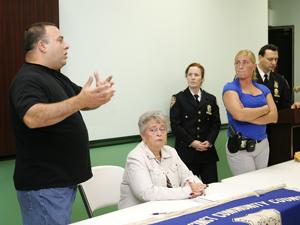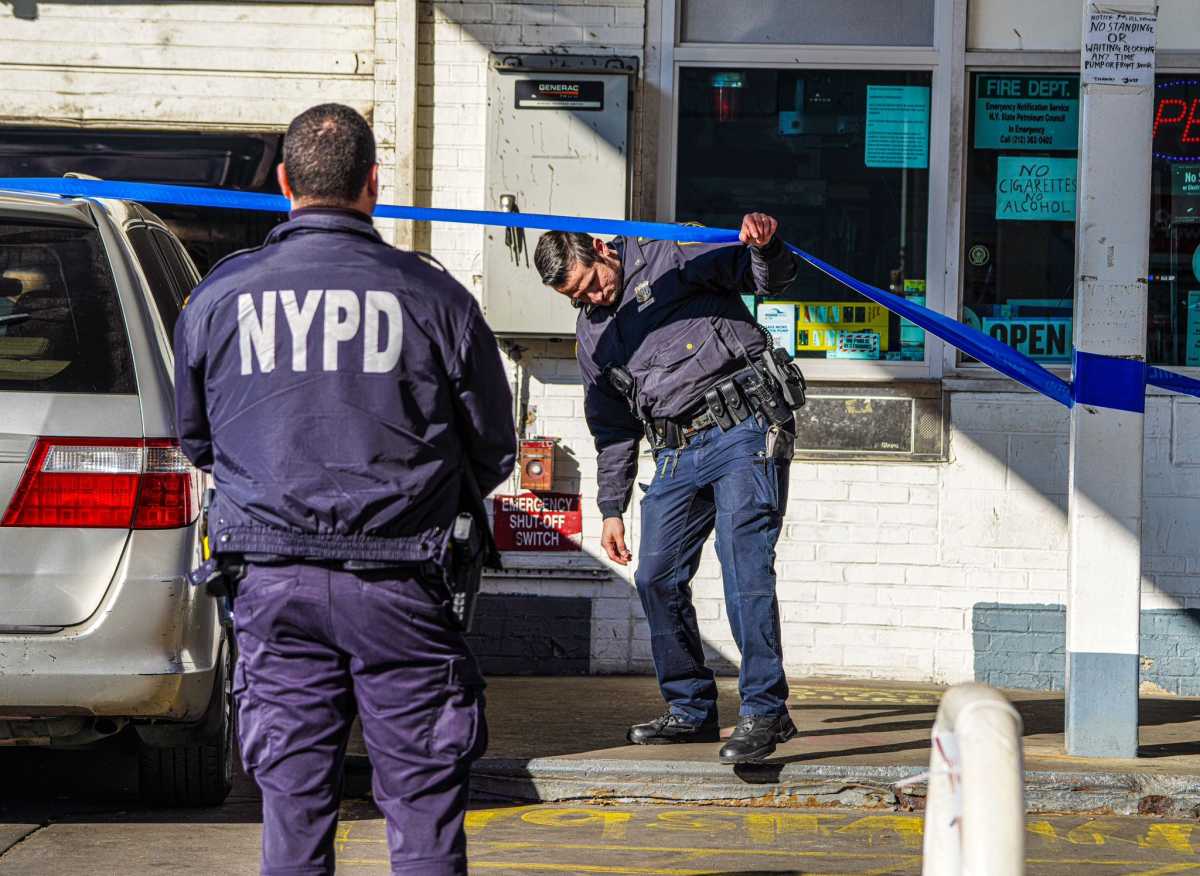When it comes to the police, Bergen Beach is starting to feel like a forgotten step-child.
Their frustration over the perceived lack of police protection in the neighborhood was palpable at a recent Bergen Beach Civic Association meeting, where members discussed just how they could get more cops to their little enclave.
Questions about their security escalated last month when a parent told members of the 63rd Precinct Community Council that it took cops 27 minutes to respond to an attack on his son.
“We were in shock,” Robert Devita told this paper after learning that not only had the 63rd Precinct focused all of its attention on Marine Park the night his 15-year-old was attacked — in order to respond to a shooting — but that there were only a handful of sector cars in operation on the night in question.
“I can’t imagine this,” he said, perplexed. “This is a huge precinct and there were only a few cars protecting it at that time? There’s one shooting in Marine Park and we get no coverage?”
Luckily, his son escaped an assault with just a few bruises. When they did finally respond, cops arrested at least a few of the perpetrators.
Yet Bergen Beach residents are worried that Devita’s child won’t be the last victim left waiting for the police to respond.
When she showed up at the Bergen Beach Civic Association, a 63rd Precinct Community Affairs officer received an earful about their concerns, especially about rumors that purse-snatchings and burglaries were on the rise.
The rest of the meeting was turned into a strategy session to determine just how they could get more cops.
City Councilmember Lew Fidler (D-Mill Basin, Marine Park, Bergen Beach), who was the guest speaker, advised a political approach– get rid of Mayor Michael Bloomberg.
“Bloomberg’s not living in the same world you and I live in,” said Fidler, accusing the mayor of paring down NYPD academy class sizes over the last year. “He doesn’t understand that reducing the academy classes is something that cuts to the core of our neighborhoods.”
Fidler said that Bergen Beach, as well as most of the neighborhoods served by the 63rd Precinct, are victims of their own success. Police resources are allocated to areas with more violence and where more 911 calls are generated.
“Any low-crime neighborhoods suffer in this formula,” he said. “If you’re not getting the calls, you’re not getting the cops.”
“I’m sure that if Inspector Frank Cangiarella [the commanding officer of the 63rd Precinct] had more cops and more cars he’d put them out on the streets.”
Fidler also finds an “inherent problem with this push to analyze performance by statistics.”
“Police commanders are being judged by their crime stats and I think it has led to under-reporting and undercharging,” he said. “Even if you want to argue that people are being charged correctly more now than before, you’re and still comparing apples to bananas when you say that crime is down because not a lot of felony crimes have been reported.”
When contacted, Inspector Cangiarella said that his officers were wrapping up their investigation into the 27-minute delay. The results of their investigation should be revealed next week at the 63rd Precinct Community Council meeting, he said.
When it comes to policing Bergen Beach, Cangiarella says the neighborhood is well protected.
“Our resources that are on patrol there are at levels higher than we had in the past,” he said, adding that the number of cops they have is “sufficient and address the concerns of the precinct.”
While there have been a few purse-snatches and burglaries in the area, Cangiarella said that the crimes aren’t located entirely in Bergen Beach, but in other neighborhoods in the command as well.
“There is no one specific area that we are seeing an increase in crime,” said Cangiarella, predicting that felony crime will actually be down in the command by year’s end.
Despite the concerns of residents, Cangiarella’s not going to put more cops in Bergen Beach to assuage anyone’s fears.
“Our resources are deployed in areas where there’s a need,” he said. “We re-evaluate those resources as the needs change.”























